Cirencester mum's brain tumour mistaken for perimenopause
- Published
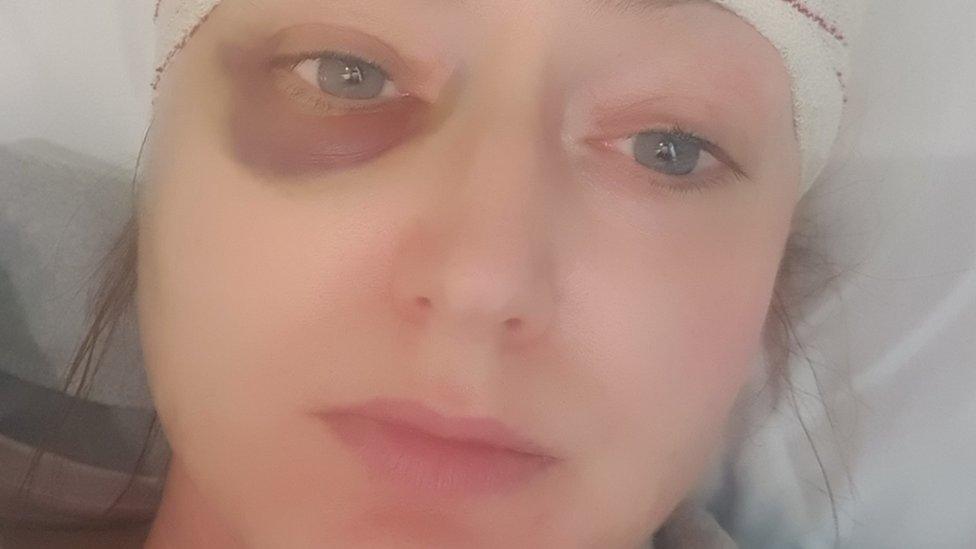
Pippa Griffiths underwent surgery to remove the tumour in October 2023
A mother-of-three was told her migraines and extreme fatigue were signs of perimenopause, before an emergency scan revealed a brain tumour.
Pippa Griffiths, 45, initially put her symptoms down to stress but said nothing would work to control the pain.
After an MRI showed a mass on her brain, she had surgery to remove the tumour in October 2023.
Ms Griffiths, from Cirencester in Gloucestershire, now wants to raise awareness of brain tumours.
"Being told that it was a tumour was obviously a shock to me," she said.
Ms Griffiths said a low point had been when she had to be given CPR by her sister during a 45-minute seizure.
"Had I not been staying with my sister when it happened, I don't think I'd be here today," she said.
"My driving licence was taken away due to the risk of a seizure. I thought it could be down to stress after moving from France to the UK.
"I tried everything to control the pain in my head including cool packs on my forehead. Nothing worked," added Ms Griffiths.
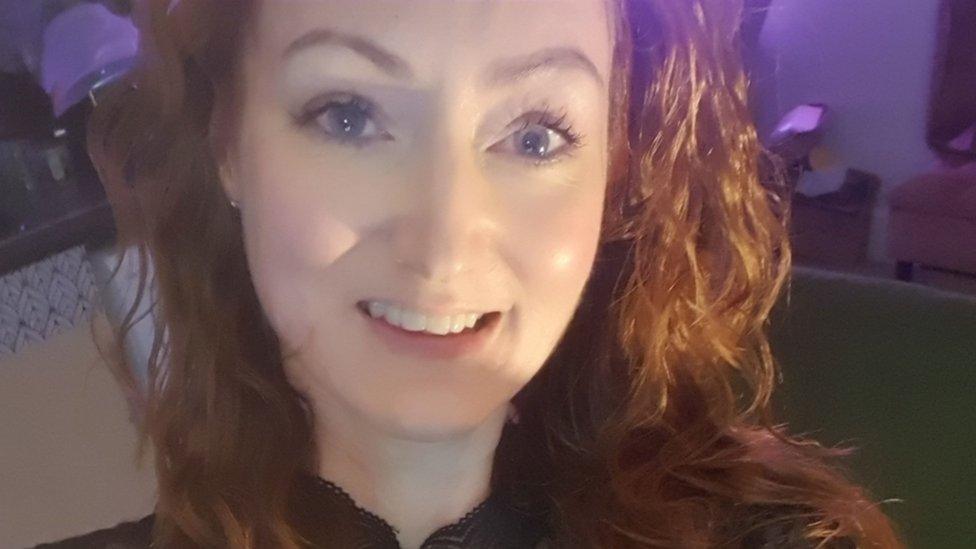
The mother-of-three is being monitored with regular follow-up scans
Ms Griffiths said her symptoms of extreme fatigue and headaches started about three-and-a-half years ago, while she was still living in France.
After about a year, when they were starting to get worse, she went to see a doctor who prescribed painkillers.
She moved back to the UK in January 2023 and straight away went to see an optician who said her eyesight was fine and advised seeing a doctor again.
"They issued more meds for the migraines," she said.
It was when she woke up with a numb feeling down one side of her face in September 2023 that she was taken for an MRI scan which showed a meningioma growing on her brain.
Following her surgery, the former photographer, who now works as a nursery assistant, is monitored with regular scans.
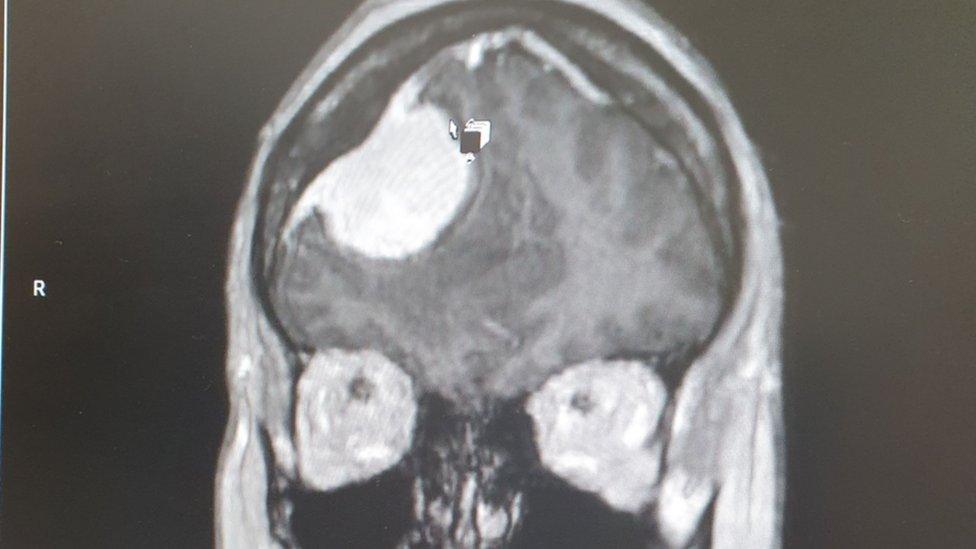
A scan revealed Ms Griffiths had a brain tumour
Despite the risk of the tumour returning, she has decided not to have any further treatment because of the possible side-effects and long-term damage to her body.
"When the doctor listed the possible side effects of radiotherapy, I made the decision not to pursue that treatment," she said.
"I was warned that it could cause cognitive decline, cataracts and pituitary gland damage which could lead to further surgeries and life-long medication.
"Being a mum to three children aged between 23 and seven, I wasn't prepared to take that risk. I want to be well enough to enjoy seeing my children grow up," added Ms Griffiths.
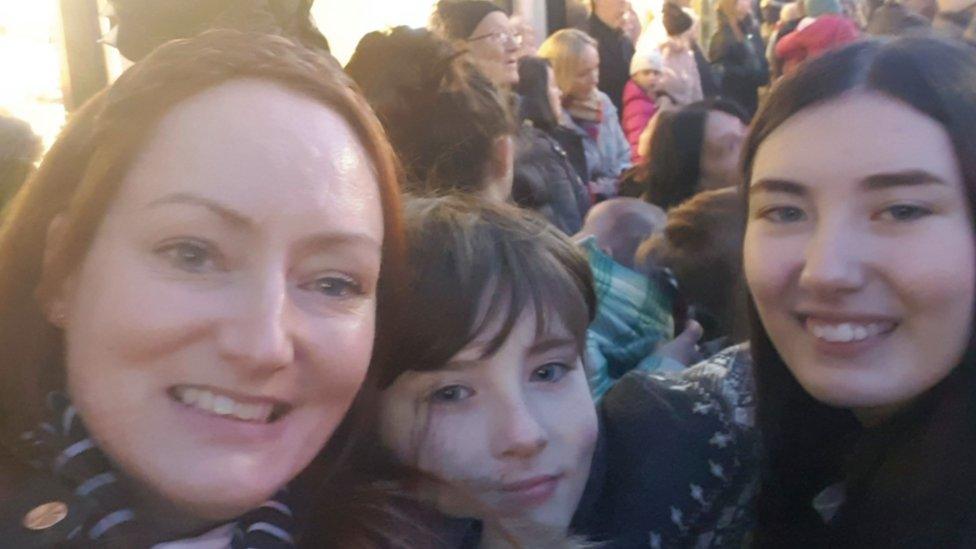
Ms Griffiths has declined further treatment because she wants to be well while seeing her children grow-up
Three months after surgery, she is now well enough to take part in a walking fundraiser for the charity Brain Tumour Research.
She added: "My migraines have stopped and the brain fog has lifted.
"I'm fine, loads of energy. I feel like I'm 10 years younger."
"It's incredibly important to raise awareness of brain tumours. Not only to understand their symptoms and causes, but also kinder treatments and ultimately a cure."
She said the symptoms are "the same really" as perimenopause, so she does not blame the doctors for not spotting the tumour earlier.
Brain Tumour Research said one in three people know someone affected by a brain tumour, but just 1% of the national spend on cancer research has been allocated to brain tumours since records began in 2002.
Mel Tiley, community development manager, said: "The fact that Ms Griffiths has declined any further treatment at this stage due to the side effects of current brain tumour treatment demonstrates the need for greater investment to research the disease."

Follow BBC West on Facebook, external, X, external and Instagram, external. Send your story ideas to: bristol@bbc.co.uk , external
Related topics
- Published16 May 2021
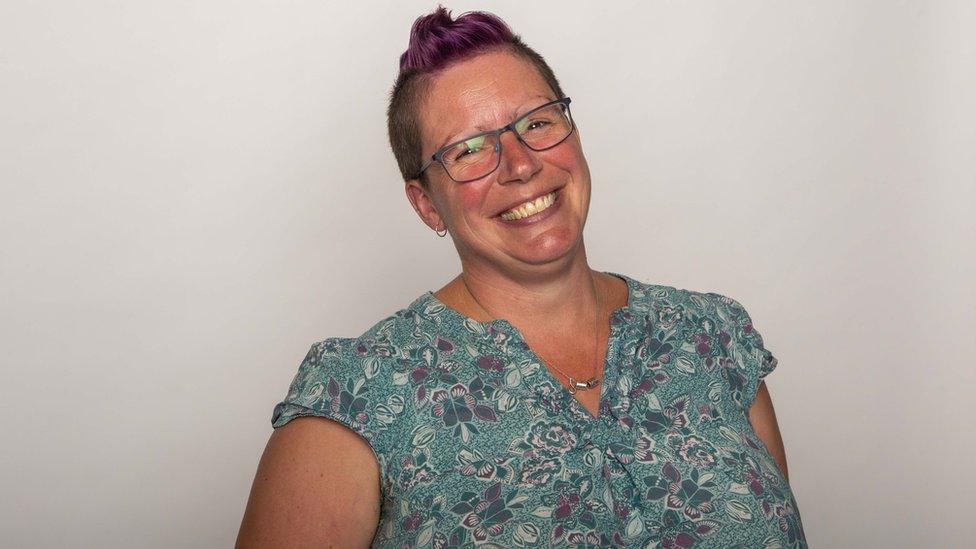
- Published16 January 2024

- Published11 January 2024
